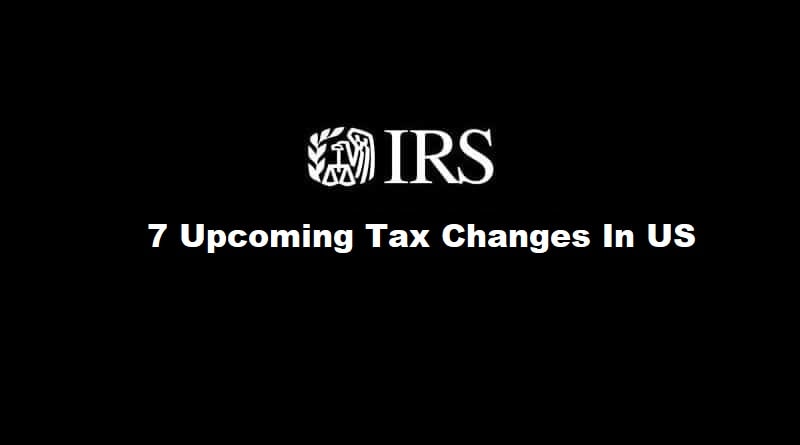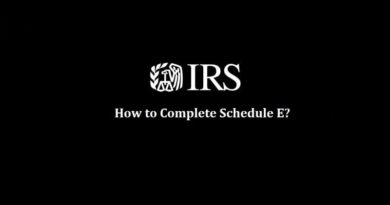7 Important Upcoming Tax Changes That You Need to Know
Taxes are a complicated and ever-changing topic that affects everyone. Whether you are an individual, a business owner, or an investor, you need to be aware of the tax laws and how they impact your financial situation.
Remember that big sigh of relief when they raised the debt ceiling this summer? Turns out, it might have been short-lived. The deal they made, called the Fiscal Responsibility Act, kicked the can down the road for a bit, but now it’s rolling full-speed towards 2025. And when it crashes, it could bring two big problems with it: a fight over the debt ceiling (again!) and changes to your taxes worth trillions of dollars.
This article is your guide to understanding the 7 upcoming changes proposed in the Fiscal Responsibility Act of 2023 recently passed by the congress.
Although, I’ll break down all the changes but if you want a brief overview, it’s not looking good for the tax payers as they’ve done away with lots of tax credits especially introduced in the Tax Cuts and Job Acts (TCJA) back in 2017, lowered standard deductions increased the overall tax rate. So, if you want a gist of it, there seems to be a tough time ahead which was very much anticipated.
Anyway, I’ll explain what’s at stake in 2025, and explore what it all might mean for your wallet so you can prepare yourself better in the upcoming tax years and brace for the impact. Think of it as a plain-English decoder ring for the world of government money talk.
So here are some of the important 7 tax changes that the tax payers are going to see in 2024-25.
#1. Individual Taxes Will Be Going Up
One of the most significant changes in taxes that you need to know is that the individual tax rates are going to go back to the 2017 levels at the end of 2025.
This means that the top tax rate will be going up to 39% from 37%. This will affect the high-income earners who are in the highest tax bracket.
If you are in this category, you might want to consider strategies to lower your taxable income, such as contributing more to your retirement accounts, donating to charities, or taking advantage of tax credits and deductions.
Also Read: How to complete the Schedule C Form for your 1040 Individual Tax Return
#2. Standard Deductions Are Being Cut in Half
Another major change in taxes that you need to know is that the standard deductions are being cut in half at the end of 2025. Right now, if you’re married or filing jointly, you get a standard deduction of $26,000.
That deduction gets cut in half, not only for those filing jointly but for individuals as well.
This means that you will have less of your income shielded from taxes, unless you have enough itemized deductions to exceed the standard deduction. Some of the common itemized deductions include mortgage interest, state and local taxes, medical expenses, and charitable contributions.
#3. Pass-Through Deductions Are Going Away
If you are a pass-through business owner, such as a partnership or S Corp, you need to know that the pass-through deductions are going away at the end of 2025.
Right now, you can take a 20% deduction off your income immediately before it passes through to your individual tax return. This is a significant tax break that lowers your effective tax rate and boosts your after-tax income.
However, this deduction will expire in 2025. Unless of course, Congress extends it or makes it permanent. This means that you will have to pay more taxes on your business income in the future.
#4. Bonus Depreciation Is Decreasing
Another change in taxes that you need to know is that the bonus depreciation is decreasing. You used to be able to depreciate a million dollars of your first year equipment, software or hardware. That number has gone down to 80% and next year in 2024 will be going down to 60%.
This means that you will have less of an incentive to invest in capital assets for your business, as you will get a smaller tax deduction.
However, you can still take advantage of the Section 179 deduction, which allows you to deduct up to $1.05 million of the cost of qualifying property in the year you place it in service.
Also Read: How to report rental income on a US Tax Return
#5. The Work Opportunity Tax Credit Is Expiring
If you are an employer who hires workers from certain targeted groups, such as veterans, ex-felons, or long-term unemployed, you need to know that the Work Opportunity Tax Credit is expiring after 2025.
Right now, you can apply this tax credit against your income up to $9,600 per eligible employee. This is a valuable incentive that encourages you to hire and retain workers who face barriers to employment. However, this credit will expire in 2025.
#6. You Can No Longer Immediately Deduct Research and Development Expenses
Another change in taxes that you need to know is that you can no longer immediately deduct research and development expenses. You have to amortize them over five years.
This applies to any research and development expenses incurred after 2021. This is a major change that affects the innovation and competitiveness of many businesses, especially in the technology and biotechnology sectors.
Research and development expenses are essential for creating new products, services, and processes that can generate revenue and growth. However, under the new rule, you will have to spread out the tax deduction over a longer period, which reduces its present value and impact.
Also Read: Meals & Entertainment Business Deductions Under Tax Cuts & Job Act (TCJA)
#7. Estate Tax Exemptions Are Being Cut in Half
The last change in taxes that you need to know is that the estate tax exemptions are being cut in half by the end of 2025. So if you’ve built up assets over time, your estate taxes could go up significantly unless you shelter them now in trusts.
Right now, the estate tax exemption is $11.7 million per individual and $23.4 million per married couple. This means that you can pass on this amount of wealth to your heirs without paying any federal estate tax.
However, this exemption will revert to the 2017 level of $5.49 million per individual and $10.98 million per married couple in 2026, unless Congress changes it or makes it permanent.
This means that you will have to pay more taxes on your estate in the future, unless you take steps to protect it, such as setting up trusts, gifting assets, or buying life insurance.
Final Word
These are some of the major changes in taxes that you need to know and how they might affect you in the coming years. Taxes are a complex and dynamic subject that requires careful planning and preparation.
You should consult with a qualified tax professional to understand your specific situation and the best strategies to minimize your tax liability and maximize your financial goals.
Moreover, if you want to read other similar informative articles, you can read more about the US Taxes here.
Remember, knowledge is power, and the more you know about taxes, the better you can plan for your future.




